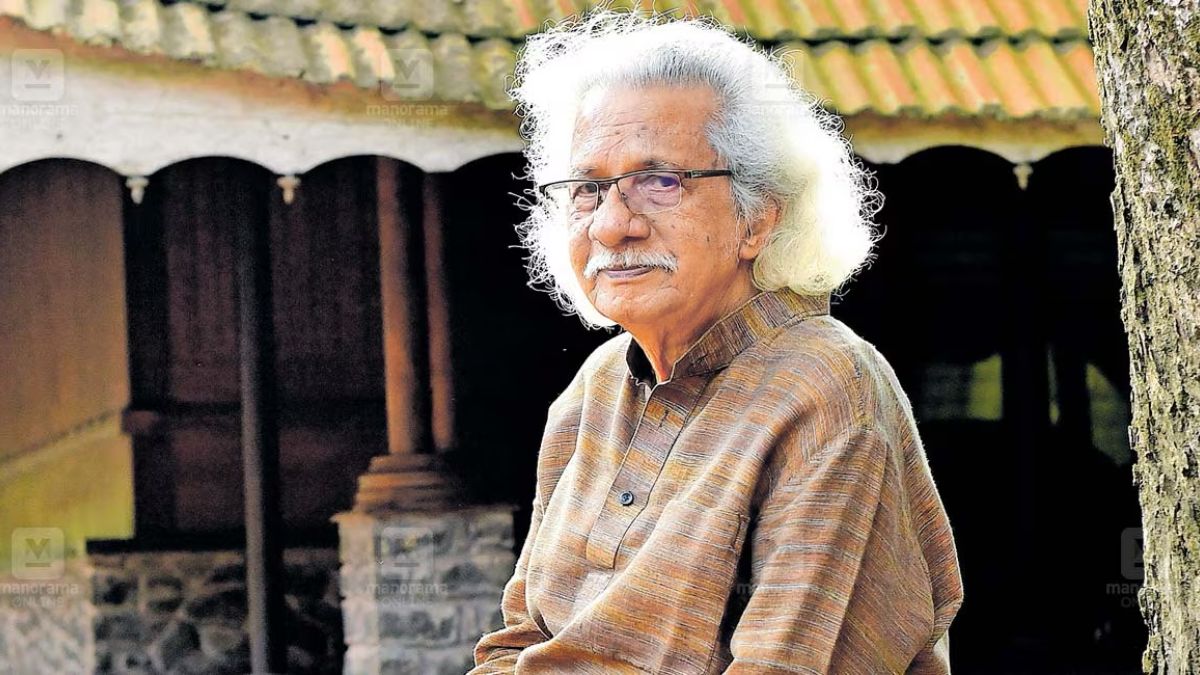'An attempt to gain publicity': Adoor Gopalakrishnan stokes flames by dismissing outcry over casteist statements at Kerala Film Conclave

Some of the finest films by veteran and globally acclaimed filmmaker Adoor Gopalakrishnan are deeply rooted in Kerala’s feudal past—marked by Nair and Namboodiri landlord dominance—and the gradual dismantling of these hierarchies through land reforms and social movements. His cinema often explored the transition from feudalism to modernity, with caste as a persistent and unsettling undercurrent. Adoor also portrayed strong, complex women in many of his films.
Ironically, Adoor is now being accused of exhibiting the very feudal, casteist, and sexist attitudes that some of his iconic characters embodied.
Speaking at the closing ceremony of the Kerala Film Policy Conclave—convened to shape the state’s new film policy—Adoor said the government should not hand out grants freely to filmmakers from Scheduled Castes, Scheduled Tribes, or women. Instead, he argued that debutant women filmmakers and those belonging to these communities should undergo an intensive three-month training program before receiving financial support.
ALSO READ: Kerala Film Policy Conclave 2025: Adoor Gopalakrishnan faces heat for remarks on film funding for SC/ST
Adoor criticised the current allocation of ₹1.5 crore to individual filmmakers from these categories, calling the amount exorbitant—enough, he said, to make a film with a superstar. He suggested splitting the grant amongst three debutant filmmakers to avoid misuse and ensure wider access.
Adoor’s remarks about the projects already completed by debutant women filmmakers with Kerala government funding were also interpreted as implying that not all films were up to the mark.
The Kerala State Film Development Corporation’s ‘Films Directed by Women’ initiative was launched in 2019, followed by the ‘Films by Directors from SC/ST Communities’ project in 2020–21. Many of these films have gone on international film festival circuits and earned praise. Most recently, Victoria—produced under the women directors’ scheme—won an award at the Shanghai International Film Festival and wide acclaim in the film festival circuit.
As Adoor made his controversial remarks at the conclave, singer, composer, and lyricist Pushpavathy—who also serves as the vice chairperson of the Kerala Sangeetha Nataka Akademi—protested in real time. On August 4, Ambedkarite social activist Dinu Veyil filed a complaint against Adoor, alleging that his public statement portrayed all members of the SC/ST communities as criminals or as people inclined toward theft or corruption. Veyil argued that such a statement promotes ill-will, constituting an offence under Section 3(1)(u) of the SC/ST (Prevention of Atrocities) Act.
The complaint further stated that Adoor’s remark about individuals from SC/ST communities “taking the money and running” with government funds associates the community with dishonesty, immorality, and corruption—potentially inciting prejudice against them.
Although the statement did not single out any individual, the complaint emphasised that it caused humiliation to SC/ST members present at the event, applicants from the ST community for the said cinema fund, and the broader SC/ST community who witnessed the remarks through social and mainstream media.
ALSO READ: ‘He portrays all members of the SC/ST section as criminals, thieves’: Dalit activist files complaint against Adoor Gopalakrishnan for 'casteist' remarks
Interestingly, on August 4, while talking to a regional news channel, Adoor reiterated his stance about what he said at the Conclave and explicitly targeted Pushpavathy.
“Who is she?” Adoor had asked while adding that Pushpavathy was trying to gain publicity with her outcry. “I have no idea who she is,” Adoor said, adding that the film conclave is not some market square or fish stall to make unwanted commotion.
Meanwhile, speaking to THE WEEK, Pushpavathy said that Adoor should take the time to learn about women like her—and about the experiences of the SC/ST community in general. “He could simply do a Google search to find out who I am,” she added.
Notably, while Adoor did not name anyone explicitly, he also made remarks that are now being interpreted as a veiled critique of an acclaimed Dalit filmmaker. While talking to the regional channel, Adoor claimed that the filmmaker’s works were made possible only due to the support and expertise of cinematographers like the late M.J. Radhakrishnan.
“Even though some of them may claim credit for those films, the truth is they were realised thanks to MJ’s expertise,” Adoor said.
Notably, at the Conclave, Adoor also criticised the 2023 protests at the K.R. Narayanan Film Institute, where he had formerly served as chairman. At the time, Adoor came under fire for defending the institute’s director, Shankar Mohan, who had been accused by students and staff of caste-based discrimination and violating reservation norms.
Adoor had dismissed these allegations as “fictional,” a stance that drew significant backlash, with critics accusing him of downplaying systemic caste issues and shielding the director. Brushing aside caste-related criticism, Adoor remarked that he had shed his caste surname at age 20. At the Conclave, he described the protest at the institute as a misguided agitation; he claimed that the institution—which he and Shankar Mohan had helped build up—had since deteriorated.
Entertainment